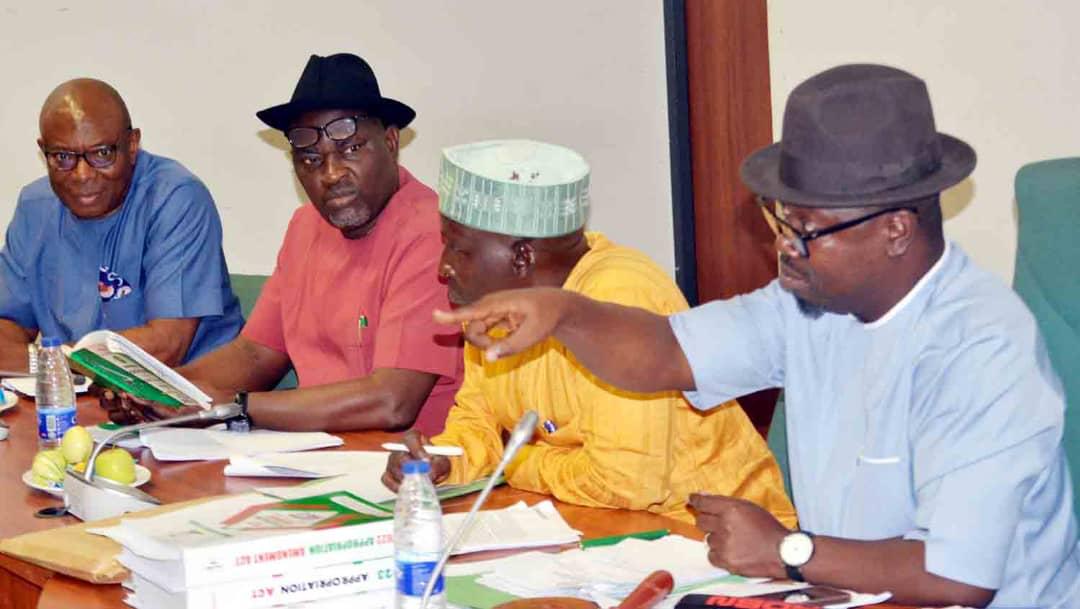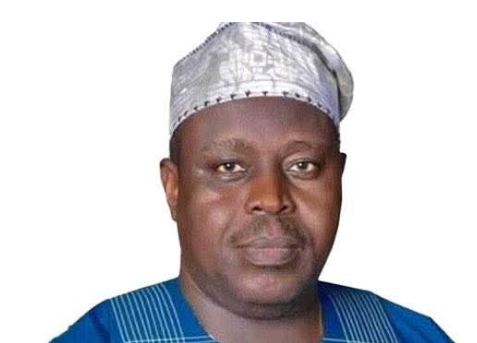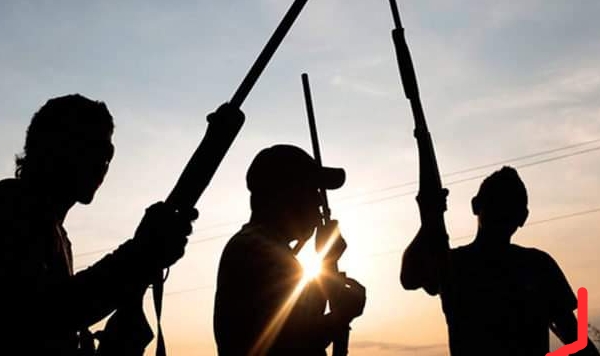News
Reps Queries WAEC Over N6bn Deficit 8

News
Gov. Abiodun commiserates with Ondo gov. over death of SSG

Ogun State Governor and Chairman of the Southern Governors’ Forum, Prince Dapo Abiodun, has commiserated with the Governor and the people of Ondo State over the passing of the Secretary to the State Government (SSG), Tayo Oluwatuyi.
Oluwatuyi reportedly died on Saturday at a hospital in the state from the injuries he sustained in an accident while traveling from Akure to Ibadan, Oyo State, on December 17.
Abiodun, in a condolence letter he sent to Governor Lucky Aiyedatiwa, described Oluwatuyi’s death as a great loss to the government and the state at large as he prayed for the repose of his soul.
He said: “I am deeply saddened by the news of the demise of Mr. Tayo Oluwatuyi, a consummate public servant, thoroughbred professional, and highly conscientious individual whose imprints and strides in and out of the government in Ondo State have been nothing short of phenomenal.
“The news of his death came as a rude shock, but, as in all situations, we recognize that whatever deep affection and love we had for him pales into insignificance when placed side by side with the love of Almighty God, who has chosen this Yuletide period to call him into His bosom, and whose will remains inviolate.
“He was a brilliant administrator and sagacious politician. He was an embodiment of virtues and a strong bridge between the political class and the career officers. His stabilizing role in government will be missed by all.
“On behalf of the Southern States’ governors, I want to sympathize with His Excellency, Governor Lucky Aiyedatiwa, and the entire good people of Ondo State over the sudden demise of Oluwatuyi.
“I urge my brother, the State Executive Council, and the family and friends of the deceased to take consolation in the fact that the deceased lived a life of service for which he will be remembered for a long time to come.
“May God repose his soul and grant his immediate family the requisite fortitude to bear the irreplaceable loss.”
News
Gunmen abduct Nigerian Professor, Demand N10m Ransom

By Kayode Sanni-Arewa
Gunmen suspected to be kidnappers have abducted Professor John Ebeh, a senior lecturer in the Department of Philosophy at Prince Abubakar Audu University (PAAU), Anyigba, Kogi State.
The assailants are reportedly demanding a N10 million ransom for his release.
Eyewitness accounts revealed that the attackers invaded the professor’s residence in Agbeji, a suburb of Anyigba, in Dekina Local Government Area, at about 7 p.m. on Thursday.
According to a neighbor who identified himself as Akpai, “The hoodlums operated in a commando manner. It was swift. We noticed a car trailing him furiously; we took it as one of his friends or colleagues, not until we started hearing gunshots around his gate.”
A family source disclosed that the professor was abducted just as he was about to enter his compound.
“Professor Ebeh was almost at the gate of his house at Agbeji, on his way from the town when the incident happened.
“He had even given out a signal to his people to open the gate of his house when some people emerged suddenly from their hideout and started shooting sporadically.
“Amidst the confusion, someone drove in furiously and blocked his car.
“Some masked people alighted from the vehicle and whisked him away at gunpoint.
“His abductors called the family on Friday night, demanding N10 million,” the source recounted.
University officials have yet to issue an official statement regarding the incident.
However, one of Professor Ebeh’s colleagues expressed shock at the development, saying, “The kidnapping (of the professor) came to us as a shock. I have just visited his family to sympathize with them.”
News
Sad: Ondo SSG Is Dead

By Kayode Sanni-Arewa
The Secretary to the Ondo State Government, Tayo Oluwatuyi, on Saturday died in an auto crash.
The SSG died in the crash which occurred while he was traveling from Akure, Ondo State capital, to Ibadan in Oyo State.
Confirming the incident, Ondo State Commissioner for Information, Wale Akinlosotu, stated that Oluwatuyi was hospitalised before he gave up the ghost.
“Hon. Oluwatuyi was a dedicated public servant whose unwavering commitment to administrative coordination, policy advisory, and implementation had a significant impact on Ondo State.
“Further details regarding memorial arrangements will be shared as they become available,” he added.
-

 News17 hours ago
News17 hours agoAngry youths beat up Monarch, destroy Palace over Jumat service
-

 News17 hours ago
News17 hours agoCelestial Church Mourns as 3 Prominent Clerics Pass Away on New Year’s Day
-

 News17 hours ago
News17 hours agoJust in: Former President Obasanjo Slams NNPCL For Insulting Him
-

 Metro24 hours ago
Metro24 hours agoHow Lady who saved N35m in UK waste all after returning to Nigeria to find husband
-

 Metro23 hours ago
Metro23 hours agoAbuja residents to face 15-day power outage from Jan 6 – TCN
-

 News17 hours ago
News17 hours agoJust in: APC Backs President Tinubu, Says Poverty Is A Global Practice
-

 Entertainment17 hours ago
Entertainment17 hours agoI Was R@ped 5 Times In My Life – Iyabo Ojo laments
-

 News24 hours ago
News24 hours agoPeter Obi Visits Dele Farotimi, Praises His Resilience and Dedication to Nigeria’s Future








